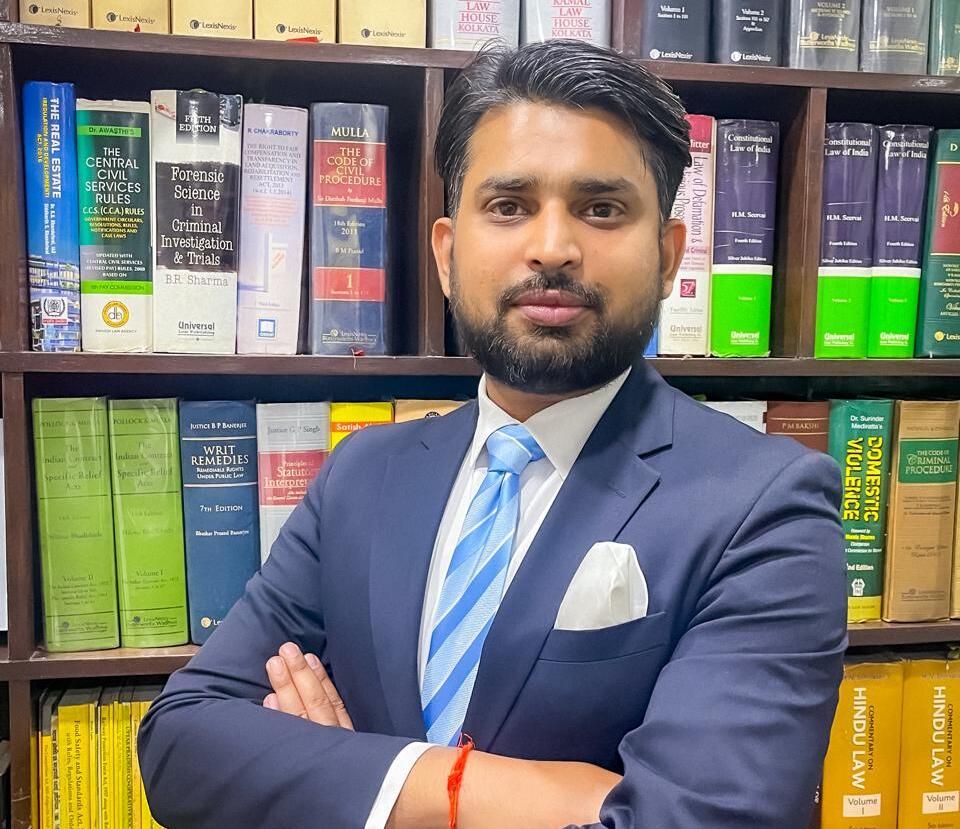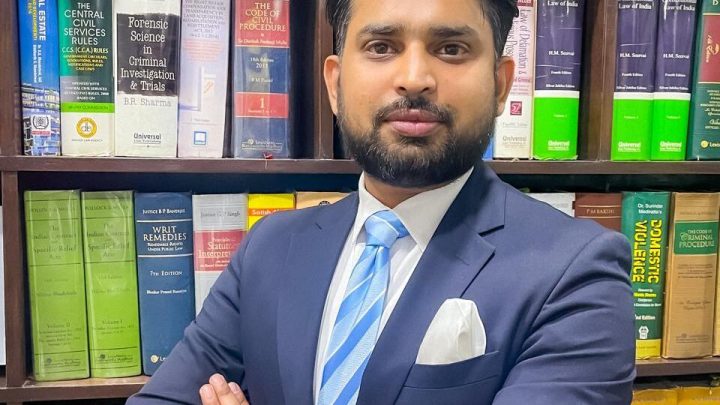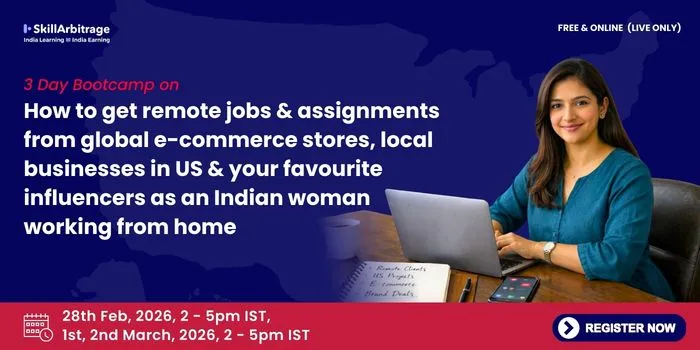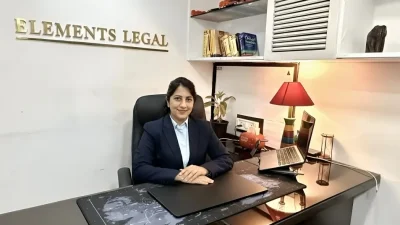Interviews
8800
0
0
“The most rewarding aspect of my legal career has been the ability to make a tangible difference in people’s lives.” – Shubham Singh, Advocate-on-Record at Supreme Court of India and Partner at Inca Law Partners.
This interview was taken by SuperLawyer Team
Posted on April 14, 2025
This interview has been published by Anshi Mudgal and The SuperLawyer Team

With over 9 years of remarkable experience and as an esteemed Advocate-on-Record (AOR), what initially inspired you to pursue a career in law? What was the driving force behind your decision to choose this prestigious profession, and how has your journey evolved over time?
Well, as far as my inspiration to pursue law as a career is concerned the same may easily find its way back to my hometown, Allahabad now Prayagraj. The idea and motivation to have a career in law is mostly from the city and from my father who’s a practising Advocate in Allahabad High Court. Although, putting a caveat to the first thought coming to the mind of everyone that I might have chosen law because of my father, he actually never wanted me to be a lawyer owing to the extremely busy lifestyle of lawyers. The city of Prayagraj is famous for many reasons and one of the most popular reasons is the Allahabad High Court and it’s legendary Advocates. There are many names to mention in the list of legal luminaries who have inspired me to make a mark in this profession but I would like to make a special mention of the legend Shri Pandit Kanhaiya Lal Mishra. Shri Mishra was a celebrated lawyer of the country and was offered Hon’ble High Court Judgeship and also the prestigious Judgeship of the Hon’ble Supreme Court He also served as the Advocate General of the state of Uttar Pradesh for 17 years, irrespective of the fact as to whose government it was in the State. People like him inspired me to become a lawyer.
So far as my journey is considered, I must tell everyone’s journey in this profession might be different. Initial years for lawyers (especially the first generation lawyers) entering into litigation, money could be a serious problem but if you keep working on your skills with patience and perseverance and be true to your profession, then sooner or later you’ll manage to break even. Leaving everything that my father had built in the legal profession in Prayagraj and shifting to Delhi was frankly quite a tough decision for me and for my family as it also turned many heads around. I believe my brother trusted my conviction and supported me which boosted my confidence and my trust in my own self that I might also make a mark on my own. My personal journey is filled with a lot of ups and downs. Sometimes you give your everything to the case but you don’t get the favourable orders, many times you expect a negative order from the Court but you get relief. I think, the only aspect a lawyer should be worried about is the value he is adding in his work so as to assist the Courts in the best way. All we need is to work with patience and perseverance. And as of now, I have reached a level where my first priority is to deliver quality work and fortunately we have been delivering reliefs to our clients.
Also, I have been very fortunate in terms of the support that I have from my family, friends and my office staff.
Having had the privilege of working with renowned senior Advocates and esteemed law firms early in your career, that must have been a truly enriching experience. Could you share some key experiences from that time that significantly enhanced your legal acumen and set you on the path toward excellence?
I think that you can shape an excellent academician in a Law School but you can’t shape a good lawyer there. The future of a young lawyer depends a lot upon the offices and seniors with whom he’s associated. The initial years of practice establish the very foundation of your career.
Since I was not from any NLU, it was quite a task for us back in the days even to be considered eligible for internships. I had the opportunity to intern in the Delhi Office of JSA wherein I was exposed to the working culture of a Tier 1 Law Firm in the country and honestly, I was really impressed. I thoroughly enjoyed my time there but I also concluded that I don’t want to pursue a career there. In my personal opinion, the problem that most of the law students who come from humble backgrounds who ultimately want to become Advocates and establish their own practise is that they initially join a good law firm with an idea to leave in future but the lucrative amount of compensation which is given by the law firm never ever allows them to leave. I, being a young law student, always had one thing in mind that I will not compromise with my dream to become an advocate irrespective of the amount of compensation I might get to do something else. Initially when I came over to Delhi just after college, I interned with Sh. Ashok Kumar Sharma, Senior Advocate, Supreme Court of India and later on joined him as an Associate. Thereafter, I joined Sh. Romy Chacko, Senior Advocate, Supreme Court of India. The experience that I gained from the office of Mr. Chacko was immeasurable. Then for a short period I joined Lex Indis Law Office as an Associate. I am lucky enough to say that I still have great relationships with all the offices that I have worked with. All my mentors in the profession have helped at all steps of my life to shape me into a better lawyer and a better human being.
After gaining valuable experience with various legal entities, what motivated you to establish your own law firm? What vision did you have in mind when starting it, and were there any challenges you had to overcome during its initial phase?
It was always a dream of mine to establish my own Law Firm. When I was deciding to leave Allahabad and practise at New Delhi, I had 2 goals, one to establish my own Law Firm and the other to become an Advocate-on-Record. Fortunately, I have achieved both the professional goals that I had set for myself at that time. The primary vision to establish a law firm was to provide Clients a one roof solution to all their legal problems and to have a systematic structure of working. At our Firm also, we always try to cater all the needs of our clients.
There are a lot of problems that you face while starting your own law firm. One of the biggest tasks is to have a founding partner with whom you can see a long term professional understanding. I was fortunate to have Sh Aditya Singh as my Partner. The other problem is managing the expenses and work management. So far, I have not faced a lot of issues with respect to these and that could be because of the understanding that we Partners have. So, my advice is that if you wish to start your own Law Firm, choose your team wisely.
Your involvement in numerous cases related to minority educational institutions has been pivotal. Could you share one of the most fascinating and impactful cases you’ve handled, and how it shaped the legal landscape for such institutions?
I have handled many cases of minority educations institutions. Even currently I am representing St Stephen’s College, St Charles School, Ryan International School and a few other institutions in ongoing cases. One of the cases that I would like to share with everyone is a civil appeal with respect to appointment of Headmaster in a minority institution before the Supreme Court. In that case I truly understood the spirit of Article 30 of the Constitution of India. In that case it was held by the Hon’ble Apex Court that a Minority Institution has the right to appoint any qualified person as its head or principal ignoring merit. The awareness with respect to this position of law is not that much. Many of the institutions still struggle to claim the benefit of being a minority institution as they don’t know where to get that recognition from. The National Commission for Minority Educational Institution at New Delhi is the body where institutions can apply for a certificate to be declared as a minority educational institution be it linguistic or religious. Minority institutions enjoy autonomy in their management, particularly in decisions related to admissions, curriculum, teaching staff, and other operational matters. However, this autonomy is subject to some regulatory oversight in the interest of quality education and public welfare.
The Supreme Court has clarified that while minorities have the right to establish and administer institutions, they must not violate the rights of others, such as admitting students on discriminatory grounds or failing to meet educational standards. In T.M.A. Pai Foundation v. State of Karnataka (2002), the Court emphasized that while minority institutions have certain rights, they must still adhere to principles of merit, fairness, and the welfare of society.
Indian competition law is evolving rapidly, especially with the growth of tech companies and ride-sharing services. Having represented clients in such high-stakes cases, could you elaborate on the key legal challenges faced and how you navigated these complex matters? Your insights into this area would be invaluable.
Indian competition law, under the Competition Act, 2002, is evolving to address the growing complexities of market dynamics, especially with the rapid rise of tech companies and ride-sharing services. This sector has experienced a significant increase in mergers, acquisitions, and market disruptions, which often challenge traditional legal frameworks. There are various legal challenges being faced in this industry like the Anti-competitive practices like predatory pricing. While I was working with Lex Indis Law Offices, we were handling the Ola, Uber and Meru’s competition case before NCLAT on behalf of the CCI, one of the issues of predatory pricing only. In my opinion Companies can navigate this by ensuring that their pricing practices do not harm the long-term viability of competition in the market. They need to demonstrate that low prices reflect efficiency or are necessary for market entry, not just predatory strategies. The other major problem is market dominance and the abuse of market dominance. With the rising teach industry in the nation, the problem of merger control and acquisitions is also becoming apparent. Especially in the ride-sharing sector, acquisitions of smaller competitors or startups are common. While mergers and acquisitions are not inherently anti-competitive, they can raise concerns if they lead to a significant reduction in competition or create a dominant player with too much market control.
As an Advocate, your involvement in landmark cases is commendable. Can you provide an overview of the P Mohanraj v. Shah Brothers case you argued before the Hon’ble Supreme Court? What were the legal principles at play, and what made this case so significant in shaping legal precedents?
I was appearing in one of the connected matters in the P Mohanraj Case before the Hon’ble Supreme Court of India. The question before the Supreme Court was whether any proceedings can be initiated against a Company under Section 138/141 of the Negotiable Instruments Act, 1881 (“NI Act”) for dishonoured cheques, if NCLT has already passed an order of moratorium under the Insolvency and Bankruptcy Code, 2016 (“IBC”) against the Company. As per Section 14 of the IBC, if Corporate Insolvency Resolution Process (“CIRP”) is initiated against a Company, a moratorium is provided on all judicial proceedings against the Company. The Supreme Court Bench comprising Justice RF Nariman, Justice Navin Sinha and Justice KM Joseph vide its judgment dated March 1, 2021 followed the logic with respect to the object of the IBC Code, if such proceedings will cause a depletion of the assets of the corporate debtor during the CIRP process which will negatively affect the Corporate Debtor from getting back on its feet during the resolution process. The Apex court analyzed this issue from various angles and held that the proceedings under Section 138/141 of the NI Act cannot be initiated against a corporate debtor if the NCLT has already passed an order of moratorium under the IBC. The Supreme Court observed that a quasi-criminal proceeding like the one under the Section 138 of the NI Act will result in the assets of the Corporate Debtor being depleted as a result of having to pay compensation which may amount to twice the amount of the dishonoured cheque. Although, the Court did not extend the same benefit to the Directors of the Corporate Debtors. This case gave a new shape to the interplay between the NI Act and the IBC Code.
Your role as a guest lecturer at St. Thomas Law College and Asian Law College is truly admirable. How does teaching law complement your busy legal practice, and what personal fulfillment do you derive from educating the next generation of legal professionals? How do you manage to strike a balance between such a demanding career and your personal life?
I find teaching an extremely noble and satisfying job. If not a lawyer, I would have chosen to become a Teacher. I have been teaching for a very long time in different capacities. I still remember that during my college days, when I was in 3rd year, after my classes I used to teach 4th year B. Tech students at Engineering Colleges for their Campus Recruitment Training. It was an extremely satisfying experience for me during those days. Since then, in some way I have been keeping myself in touch with the academics. After joining the professions, I had the privilege of giving guest lectures at law colleges and conduct seminars for the law students. Teaching law alongside a busy legal practice can be incredibly rewarding both professionally and personally. For many legal practitioners, it offers a unique opportunity to share their experience and expertise with the next generation, while also enhancing their own understanding of the law. Teaching complements legal practice and forces you to stay sharp and up-to-date with legal concepts, theories, and developments. As a practitioner, you may not always have the time to revisit foundational topics or explore new areas in depth, but teaching requires you to stay current, reinforcing your understanding and perhaps even challenging your assumptions. This intellectual engagement can help improve your skills and contribute to your practice. It gives you the opportunity to shape future lawyers, imparting practical knowledge and ethical values that can influence their careers.
While I used to teach as a Guest Faculty, I have always focussed to teaching the students the practical aspects of law. I used to take classes on drafting and pleadings, cpc, crpc, evidence, company law, family law and property law. Even workshops in law schools really help and expose the students to the practical world of the profession. I had ventured to teach students at United University about drafting and pleadings at the Supreme Court while conducting a one day workshop.
Given your extensive experience providing legal consultancy to start-ups, what are some of the most common legal challenges faced by emerging businesses in India? How do you guide them through these challenges and ensure their long-term success in a complex regulatory landscape?
In my opinion the start-us and emerging businesses in India are facing a variety of legal challenges, particularly given the complex regulatory environment. The very inception comes with the legal hurdles like business registration and compliances, whether to register as sole proprietorship, partnership, limited liability partnership (LLP), private limited company based on their objectives, funding sources, and long-term goals. Navigating through the documentation and formalities required for the registration. The protection of the Intellectual Property Rights and its infringement. Most of the Start-ups that contact us, their primary concern starts with funding and investment issues like raising capital, whether through equity, debt, or hybrid instruments, often involves legal complexities, particularly in structuring the deal, preparing shareholder agreements, and complying with regulatory filings. If the business is seeking foreign investment, it must comply with India’s FDI regulations, which can be quite specific depending on the industry. As start-ups grow and attract investors, conflicts over ownership structure, control, and profit-sharing can arise, necessitating well-structured agreements upfront. I have been advising the Start-ups to have a structured due diligence at the very start, as it helps them have stability and attract more investments. In my opinion an emerging business in India can mitigate these challenges by seeking early legal advice, creating clear business structures, staying on top of regulatory changes, and drafting well-defined contracts and agreements. Consulting with experienced legal professionals who specialize in start-up law can help avoid common pitfalls and establish a solid foundation for growth.
Your unwavering commitment to the legal profession is truly inspiring. What has been the most rewarding aspect of your legal career, and what continues to drive your passion for law? Additionally what advice would you give to the younger generation who wish to have a successful career in law?
The most rewarding aspect of my legal career has been the ability to make a tangible difference in people’s lives. Whether it’s advocating for a client in need, helping to ensure justice is served, or navigating complex legal issues, knowing that my work can have a positive impact on others is truly fulfilling.
When I look back I can certainly relate to many of the law students who believe that the profession is a lot about money and power. But I have evolved to understand that this noble profession is like an art and the most rewarding thing is the recognition that you get from the Hon’ble Judges and the senior members of the Bar. I still remember while I was arguing a case before the bench of Hon’ble Justice B R Gavai and Hon’ble Justice P S Narsimha, at the end of the hearing the Bench praised my arguments but I was in such a disbelief that I confirmed from the Court if they praised me or asked a question, resultantly they affirmed their opinion. There has been no fee that has been more rewarding than that particular recognition to me.
For younger generations interested in a career in law, I would advise them to remain persistent and curious. Law is a challenging field, but it’s also incredibly rewarding. It’s crucial to develop strong critical thinking skills, cultivate emotional intelligence to understand the people behind the cases, and always prioritize ethics and integrity in every step of your career. Networking and seeking mentorship from experienced professionals in the field can also provide invaluable guidance and opportunities for growth. Finally, I would say to never stop learning—law is dynamic, and the best lawyers are those who are always evolving.
Get in touch with Shubham Singh –







No comments yet
Be the first to share your thoughts about this interview.